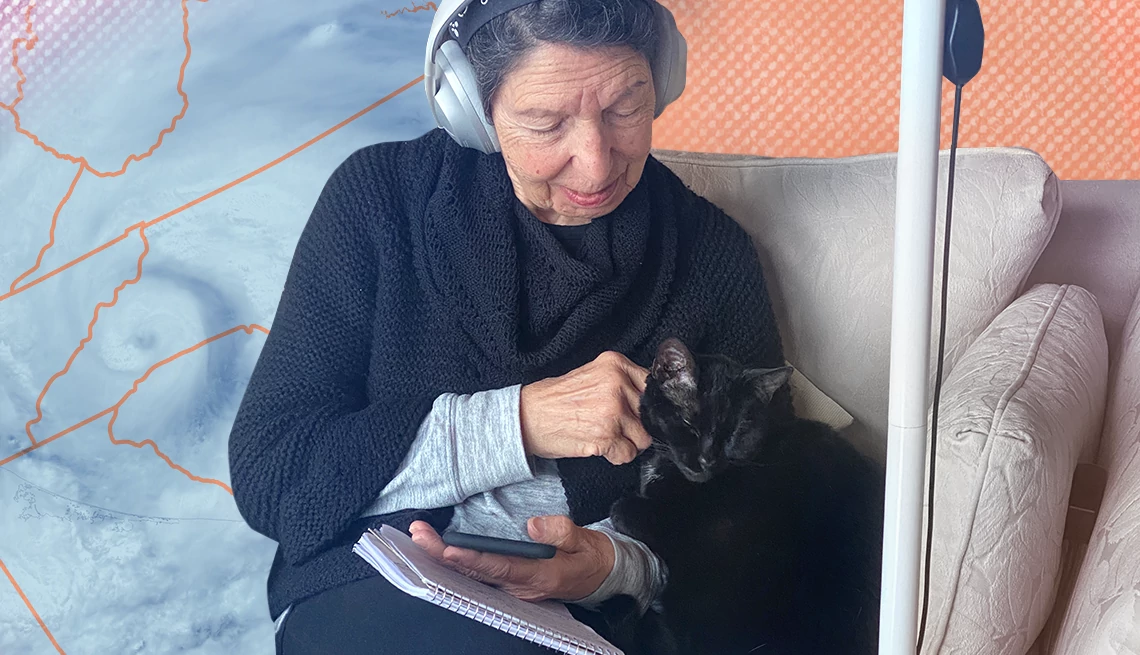AARP Hearing Center


It’s a normal weekday at the mountain home outside of Asheville, North Carolina, where I’ve lived with my 80-year-old mother, Mahin Murphy, and 78-year-old stepfather for a decade. As my mother’s primary caregiver, I’ve just paused my work as a freelance journalist to make an appointment for her at a local spine clinic to address severe back pain. When I learn that we need her referring physician to schedule an MRI first, I shoot an email through her patient portal.
As I do that, Mom, despite her pain, is ripping, cleaning, and chopping leeks for soup. A retired physician who immigrated from Iran in 1979 and had to complete a second residency while learning English, she is the most determined person I’ve ever known. She’s had to survive colon cancer in her 40s, brain surgery in her 60s, and countless other health problems. As osteoarthritis has steadily taken away her ability to stay busy through knitting and jewelry making, she’s recently turned to cooking instead.
To keep her mind occupied, she listens to YouTube via headphones, having refused hearing aids on the grounds that she cannot handle anything inside her ears. My role as caregiver, I’ve come to accept, is first to help her do what she wants and then support her if any physical and mental repercussions follow.
Two weeks ago, all of these activities were impossible, thanks to Hurricane Helene. While our home escaped damage, our neighborhood lost power for 13 days. That meant losing water, since we have a well with an electric pump, as well as internet.
Without the usual coping mechanisms of cooking and listening to YouTube, Mom struggled. Her usual pessimistic outlook — thanks to some mild dementia and major depression, for which she refuses to medicate or go to therapy — magnified. And I came face to face with my strengths and failings as my mother’s caregiver. Here’s what I learned.
I’m at my best when Mom has a medical issue. Two weekends in a row, she had to visit the ER for two different problems: severe pain likely caused by a fall, followed by a hernia in her groin that had become incarcerated. I’ve lived with Crohn’s disease since I was 10, so I have both lived experience and Mom’s medical knowledge to make conversing with doctors and nurses easier. While Mom can talk needle gauge sizes for her IVs and medication dosages with the professionals, I’m the one who delivers a clear, concise timeline of her medical history and the reason we’re there.































































More From AARP
Caregiving Items that Make Mealtime Easier
Adaptive dinnerware, utensils and tools that reduce stress and boost independence10 Common Mistakes That Family Caregivers Make
Experts share how to avoid these caregiving pitfallsBarbara Corcoran Shares How She and Siblings Cared for Mom With Alzheimer’s
The ‘Shark Tank’ investor and real estate mogul on the freeing feeling of advance testingRecommended for You